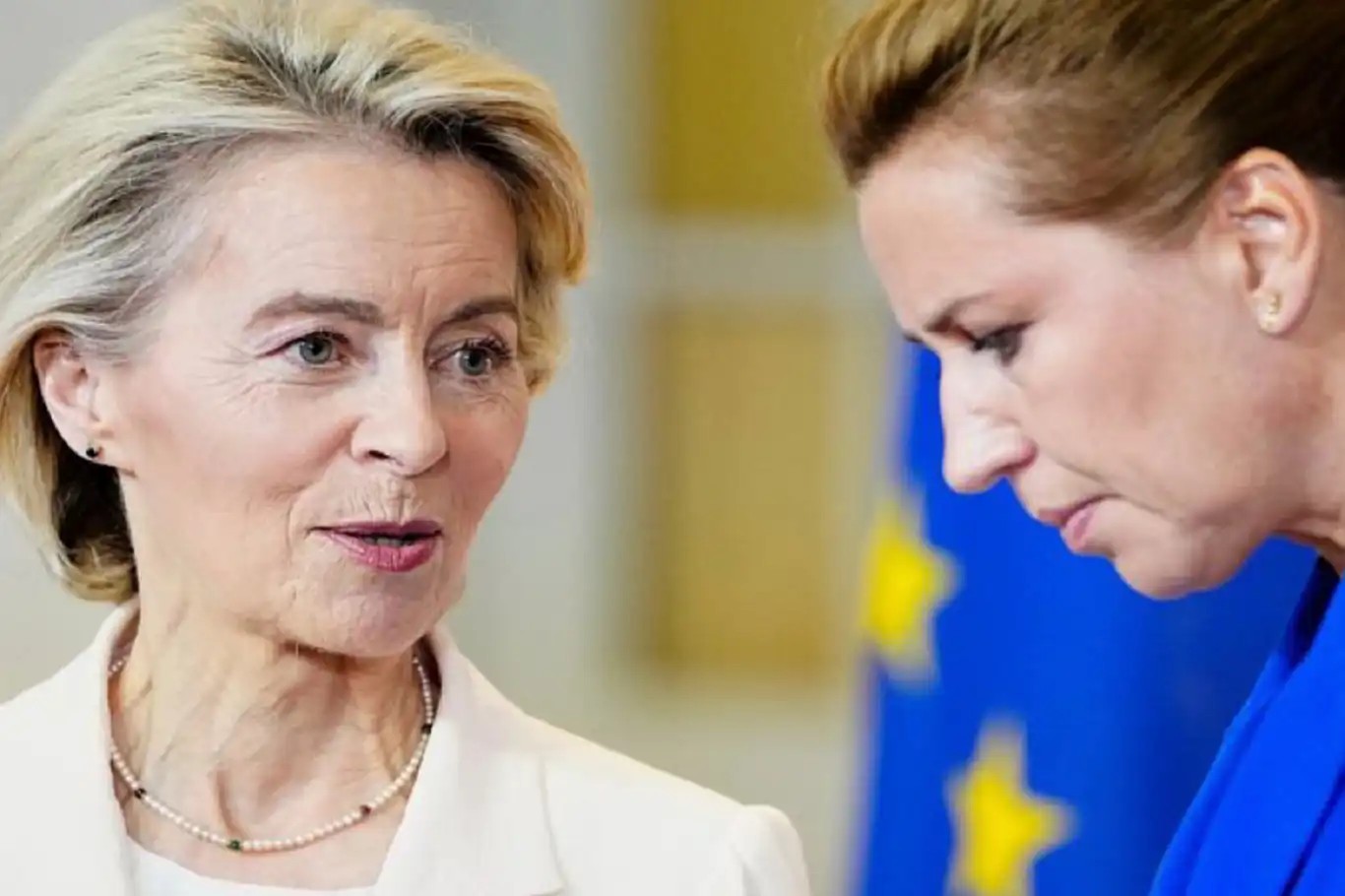EU leaders back drone wall for strengthened European security


European Union leaders convened in Copenhagen on Wednesday, offering “broad support” to ambitious defence initiatives, including a European “drone wall,” new air and space defence shields, and plans to use frozen Russian assets to fund a loan for Ukraine.
European Council President Antonio Costa confirmed that leaders endorsed the European Commission’s proposals to strengthen Europe’s security architecture. Among the flagship projects are the European Drone Wall, the Eastern Flank Watch, an Air Defence Shield, and a Defence Space Shield.
“Leaders broadly supported initial priority flagship projects that will strengthen Europe’s security,” Costa told reporters after the informal summit.
The meeting came on the heels of recent airspace violations in Poland, Estonia, Romania, and Denmark, underscoring vulnerabilities along the bloc’s eastern flank.
Danish Prime Minister Mette Frederiksen, who hosted the gathering, stressed the urgency of expanding Europe’s drone and anti-drone capabilities.
“We need to strengthen our production of drones, of anti-drone capabilities,” Frederiksen said. “This includes building up a European network that can detect and neutralise intrusions from outside. Inspired by Ukraine, we must create a European ecosystem for cutting-edge drone solutions.”
European Commission President Ursula von der Leyen echoed the urgency, describing the violations as “part of hybrid war tactics.”
“We must provide the strongest deterrence at scale and at speed,” she said. “There is a clear sense of urgency because preserving peace has always been a core task of the European Union.”
The Commission is expected to release a detailed Defence Roadmap within two weeks, setting out capability targets and funding plans before a formal summit later this month.
Beyond military projects, leaders also discussed financial support for Ukraine. A bold proposal from the Commission seeks to raise €140 billion through a “Reparations Loan” backed by immobilised Russian assets, the majority of which are held at Euroclear in Belgium.
The mechanism would allow Ukraine to receive funding gradually, with repayment obligations tied to Moscow’s eventual responsibility for war damages. The plan ensures Russia’s frozen assets remain technically untouched, but loan proceeds would flow to Kyiv.
Danish premier Frederiksen framed the move as an investment in Europe’s own security: “Ukraine is today Europe’s security guarantee. Our support to Ukraine is a direct investment in our own security.”
However, the proposal drew pushback from Belgian Prime Minister Bart De Wever, who raised legal and technical concerns over risk management. Belgium, as host to Euroclear, fears being left exposed to lawsuits or defaults.
Von der Leyen sought to reassure Brussels, insisting that risks would be shared: “Belgium cannot be the only member state carrying the risk. The burden must be shared more broadly.”
She reiterated: “There is no seizing of the assets. The Russian claim stays a Russian claim.”
The Copenhagen summit signals growing consensus among EU leaders on accelerating defence integration in light of rising threats. Still, critical details — from financing mechanisms to legal safeguards — will be hashed out when the Commission delivers its defence roadmap and leaders reconvene for a formal summit later this month. (ILKHA)
LEGAL WARNING: All rights of the published news, photos and videos are reserved by İlke Haber Ajansı Basın Yayın San. Trade A.Ş. Under no circumstances can all or part of the news, photos and videos be used without a written contract or subscription.
Israeli occupation forces have intercepted and seized the Global Sumud Flotilla, a peaceful convoy of more than 40 civilian vessels carrying nearly 500 international volunteers and urgently needed humanitarian aid to Gaza.
Israeli occupation forces have intercepted and seized the Global Sumud Flotilla, a peaceful convoy of more than 40 civilian vessels carrying nearly 500 international volunteers and urgently needed humanitarian aid to Gaza.
The death toll from Israel’s relentless assault on the Gaza Strip has soared to 66,225 martyrs, the overwhelming majority women and children, since the start of the aggression in October 2023.
Hope has turned to anguish for the families of dozens of students missing at a collapsed Islamic boarding school, as Indonesian authorities announced Thursday they have found no further signs of life and are shifting their focus from rescue to recovery.